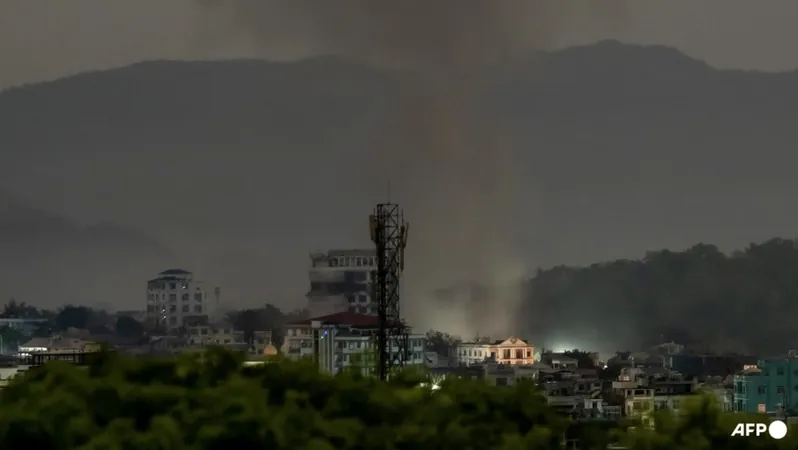
Tensions Rise as Myanmar Rebel Leader Undergoes 'Medical Care' in China
2024-11-19
Author: Ming
Tensions Rise as Myanmar Rebel Leader Undergoes 'Medical Care' in China
In a developing story that has captured the attention of both Myanmar and international observers, Beijing announced on Tuesday (November 19) that Peng Deren, the commander of the Myanmar National Democratic Alliance Army (MNDAA), is currently in China receiving 'medical care.' This declaration comes amidst conflicting reports from Myanmar indicating that Peng was arrested at the behest of Chinese authorities.
China maintains a complex relationship with Myanmar. While it is a key ally of the Myanmar military junta, supplying arms and support, it also has ties with ethnic armed groups, like the MNDAA, which control regions along the shared border where violence often erupts. This duality in China's foreign relations reveals its strategic interests in the region, especially considering the significant natural resources like jade, timber, and opium that are pivotal to both local economies and international markets.
Reports circulating in Myanmar suggested that Peng was detained by Chinese officials, but the Chinese Foreign Ministry refuted those claims. During a press conference, spokesman Lin Jian stated that Peng had applied to enter China for medical treatment and is presently recuperating, without disclosing specifics regarding his health or location. Notably, Peng, who is also known as Peng Dashun, prefers to keep a low profile and has historically avoided media engagements.
The MNDAA is part of a broader network of rebel groups in Myanmar that have fought against the military government for decades, seeking greater autonomy. The organization recently gained momentum, notably recapturing the town of Laukkai in January of last year, a strategic victory following a massive surrender of junta troops. Furthermore, in August, the MNDAA achieved a significant milestone by taking control of Lashio, a major urban area that is roughly 100 kilometers from their traditional stronghold, enhancing their influence and control at an unprecedented level.
However, this aggressive push against the junta has raised alarms in Beijing, which has historically been cautious about Western influence in the region. Analysts suggest that the capture of Lashio may have pushed China to exert more influence over the situation. Jason Tower from the United States Institute of Peace indicated that China could be strategically utilizing Peng's status to negotiate greater security concessions from Myanmar's junta leadership, as the military may come under pressure to placate Beijing amid fears of losing control.
In retaliation to the MNDAA's territorial gains, China has reportedly enacted punitive measures, including cutting off electricity, water, and internet services to the Kokang region, where the MNDAA has a significant presence. This strategic move underscores China's commitment to stabilizing its border and maintaining its investments in the region.
Junta chief Min Aung Hlaing recently met with Chinese Premier Li Qiang and expressed the military's willingness to pursue peace, contingent on cooperation from the armed groups. The situation remains fluid, and the intricate balance of power between the Myanmar military, the MNDAA, and Chinese interests will continue to evolve as stakeholders navigate this tense geopolitical landscape. Stay tuned for updates on this developing story as it unfolds!



 Brasil (PT)
Brasil (PT)
 Canada (EN)
Canada (EN)
 Chile (ES)
Chile (ES)
 España (ES)
España (ES)
 France (FR)
France (FR)
 Hong Kong (EN)
Hong Kong (EN)
 Italia (IT)
Italia (IT)
 日本 (JA)
日本 (JA)
 Magyarország (HU)
Magyarország (HU)
 Norge (NO)
Norge (NO)
 Polska (PL)
Polska (PL)
 Schweiz (DE)
Schweiz (DE)
 Singapore (EN)
Singapore (EN)
 Sverige (SV)
Sverige (SV)
 Suomi (FI)
Suomi (FI)
 Türkiye (TR)
Türkiye (TR)